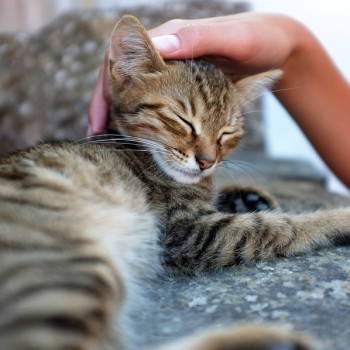Cats who receive positive attention from human caretakers while in animal shelters exhibit fewer signs of stress and a lower incidence of upper respiratory disease than cats who don’t.
These results, reported in the October 2015 issue of the peer-reviewed journal Preventive Veterinary Medicine, are consistent with the authors’ earlier study on petting shelter cats, which found that gentle stroking also lowered the incidence of URD.
In this study, cats were petted, played with and groomed in four 10-minute sessions each day for a 10-day period. Behavior and medical observations were made, and the cats were tested for feline herpes virus type 1, feline calicivirus, Mycoplasma felis, Chlamydophila felis, and Bordetella bronchiseptica. These cats showed signs of respiratory disease less frequently, and also shed fewer pathogens than the control cats.
These findings as well as those of the earlier study, strongly suggest that positive attention to shelter cats by humans will benefit them emotionally and also keep down the levels of respiratory disease — which is often rampant in animal shelters.
The complete study can be read, or purchased for non-subscribers at the link below.
Nadine Gourkow, Clive J.C. Phillips, Effect of interactions with humans on behaviour, mucosal immunity and upper respiratory disease of shelter cats rated as contented on arrival, Preventive Veterinary Medicine, Volume 121, Issues 3–4, 1 October 2015, Pages 288-296, ISSN 0167-5877, http://dx.doi.org/10.1016/j.prevetmed.2015.07.013.
Also of interest:

